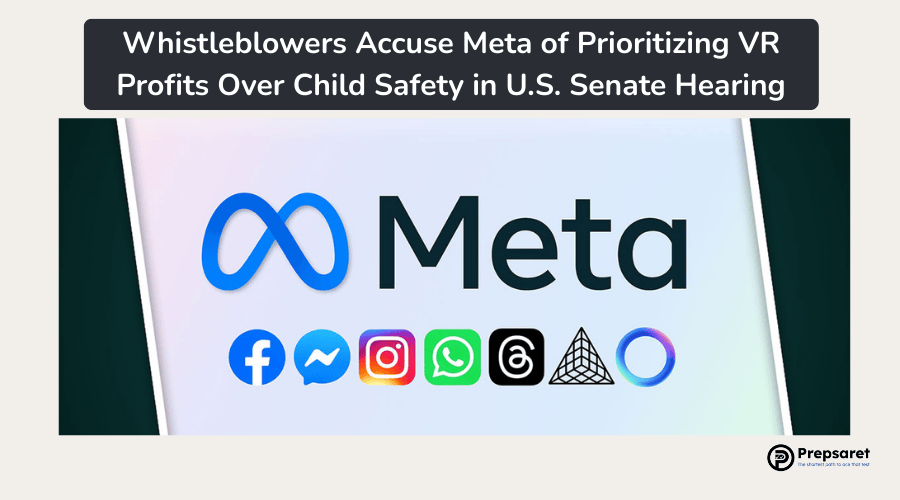Key Points:
- Two former Meta researchers told Congress the company ignored internal warnings about children’s exposure to harmful content on VR platforms.
- Testimony revealed instances of bullying, sexual harassment, and inappropriate interactions involving minors.
- Meta denies the allegations, calling them a selective misrepresentation of internal documents.
Whistleblowers Detail Alarming Risks for Children
Meta Platforms, the parent company of Facebook, is facing renewed scrutiny after two former employees testified before a Senate subcommittee on privacy and technology. The whistleblowers, Cayce Savage and Jason Sattizahn, alleged the company placed profit from its virtual-reality ventures above the safety of children.
Savage, a former user experience researcher, claimed Meta deliberately shut down internal research that revealed children were actively using its VR products and encountering explicit content. She testified that in her work she saw cases of minors being bullied, sexually harassed, and pressured to share nude photographs.
“Meta cannot be trusted to tell the truth about the safety or use of its products,” Savage told lawmakers. According to her testimony, company leadership instructed researchers not to pursue further investigations into harms affecting children so that Meta could claim ignorance.
Sattizahn, who worked at Meta’s Reality Labs, echoed these concerns. During questioning, Senator Marsha Blackburn asked if he was surprised by reports that Meta’s AI chatbots were permitted to engage children in “romantic or sensual” conversations. “No, not at all,” Sattizahn replied, underscoring his belief that the company tolerated risks to minors while prioritizing growth of its virtual reality business.
Read also:
- WhatsApp Prohibited on U.S. House Devices Due to Security Concerns
- Meta Offered $100 Million Bonuses to OpenAI Employees
Meta Pushes Back Against Allegations
The hearing follows a Reuters investigation that uncovered an internal Meta policy allowing chatbots to interact with children in ways critics called dangerously inappropriate. Lawmakers from both parties have since stepped up pressure on the tech giant, raising questions about whether current safeguards are adequate to protect young users in immersive digital spaces.
In response, Meta denied the whistleblowers’ claims. Company spokesperson Andy Stone said the accusations stem from “selectively leaked internal documents that were picked specifically to craft a false narrative.” He added that “there was never any blanket prohibition on conducting research with young people” and maintained that examples cited in recent reports had already been removed for violating policies.
Despite Meta’s defense, the testimony has fueled bipartisan concern that the company is failing to prioritize child safety in its pursuit of virtual-reality dominance. Lawmakers signaled that stronger regulations and oversight may be needed to ensure accountability.
At a moment when VR technology is rapidly expanding into homes, classrooms, and workplaces, the allegations strike at the heart of a growing debate: how to balance innovation with responsibility. For critics, the hearing reinforced fears that unchecked corporate ambition could leave the youngest users most at risk.

